[Editor’s note: Joyce Murray, MP for Vancouver Quadra, was named head of the Treasury Board Monday, March 18. Earlier this month Tyee contributing editor Michael Harris interviewed Murray at length in Ottawa for this profile.]
When Joyce Murray walked into the Metropolitain Brasserie in Ottawa for our interview, she didn’t look like a person returning from the nightmare landscapes of a real-life Stephen King novel.
Less than two weeks earlier, she and her husband had been asleep in their Vancouver home when they got the 3 a.m. phone call that every parent dreads.
It was Mexico on the line. Their 38-year-old son Erik, who was honeymooning in Cancun with his bride Arianna, had had a terrible accident. He had fallen from a “great height” and was badly injured.
“By 8:45 a.m., Dirk and I were on a flight to Mexico. A lot of things had to be organized when we arrived, including collecting a supply of Erik’s blood type because he needed transfusions, and his type was in short supply down there.”
Among her husband, son and four volunteer donors, enough O negative blood was collected to stabilize Erik for medical evacuation back to Canada. In fact, more than enough was collected at the Hospital Galenia in Cancun. Some of the blood that wasn’t needed for Erik was used for a pregnant woman with twins who had an emergency situation, another unit for a victim of a car accident.
Back in Vancouver, Erik underwent emergency surgery at Vancouver General Hospital. Remarkably, VGH surgeons were able to stabilize all his major bone breaks. There were a lot of them — both femurs, a hip, two pelvic fractures, two kneecaps, and tailbone. Bones were also damaged in his elbow, hands and feet, as well as two vertebrae.
“He slipped on wet marble tiles during a tropical storm and fell off the balcony of his fourth story hotel room,” Murray says. She sips the glass of water she’d ordered to go with her chowder — a meal she would barely touch over the next hour.
“The railings on those balconies are quite low. They would not be approved in Canada. Somehow he went over, falling about 35 feet. Because he is so athletic, he was able to get himself in the best position before hitting the ground.”
In the wake of Erik’s fall came ten harrowing days for the MP for Vancouver Quadra and her immediate family — husband Dirk, son Baba, daughter Dawn, and five grandchildren. And of course Arianna. Would the young man make it? And if he did, would there be long-term damage?
The tightly knit family closed ranks around Erik’s bedside, bringing him smoothies and treats designed to tempt him to eat. Support poured in from across the country. One of the calls came from the prime minister while Murray was still in Mexico.
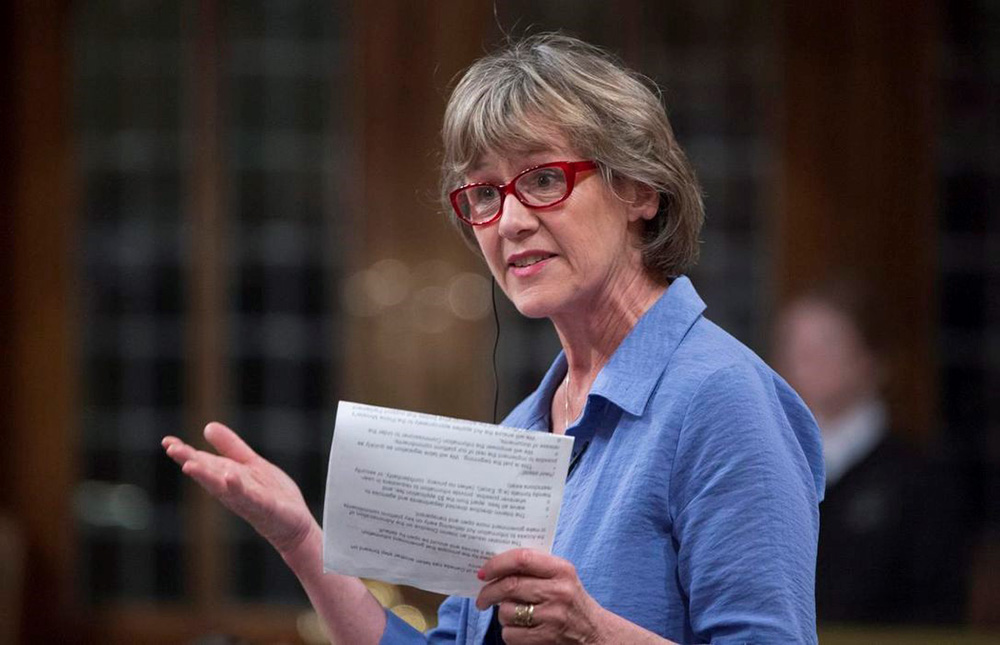
“Justin called and we spoke for at least 15 minutes. He has a family of his own and understood what this meant. He told me to take all the time I needed to deal with the situation.”
The road ahead for Erik’s recovery will be rocky — three to four months before he can even put weight on his damaged legs. After that, there will be months of hospital rehab, months more in a wheelchair, home accessibility renovations and retraining for his traumatized muscles.
Murray, who is as stoic as Erik himself has been about his accident, is undaunted. She is no stranger to difficult health issues. Her mother, who lives in her own home 15 minutes from Murray’s, is in the final stages of Alzheimer’s. In Murray’s world, a person does what a person has to do — what’s needed.
Wilson-Raybould should ‘absolutely’ stay on
Through the worst of her personal crisis, Murray immediately faced a political firestorm when she returned to Ottawa. The government was in chaos. Jody Wilson-Raybould had resigned from cabinet over allegations of political interference in a criminal case.
Then as the dust was settling from that shocker, another member of Trudeau's cabinet, Jane Philpott, also resigned. Philpott said she had lost confidence in the government’s handling of the SNC-Lavalin case.
What did Murray make of the demise of Canada’s first Indigenous justice minister?
“She is a friend of mine. I do think that every individual has their own experience of what is reality and truth. You can have the exact same experience and different perceptions of it. The Clerk of the Privy Council says that PMO officials talked to the former AG [attorney general] about the repercussions of her decision on the SNC-Lavalin case. The former justice minister will have to frame that according to her values and perception. There is no objective reality when it comes to human experience. I don’t think a partisan bake-off on this is a useful exercise.”
So does Murray want Wilson-Raybould to stay on?
“Yes, absolutely. She is committed to the team and completely entitled to remain in caucus. I am happy to work with her on that basis.”
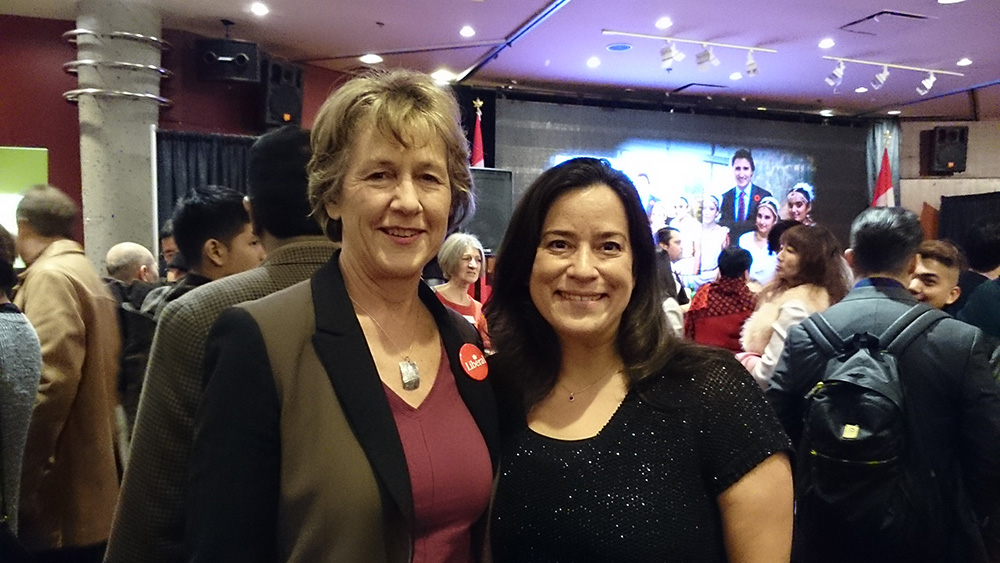
As for former president of the treasury board, Jane Philpott, who quit over the alleged improper pressure applied to Raybould after she had decided the SNC-Lavalin case, Murray thinks cabinet comes with intense pressure in every portfolio.
“That was my experience too as a provincial environment minister. Each caucus member is entitled to their own views and decisions. I understand the PM acknowledged Jody’s right to decide the SNC-Lavalin matter, she did so, and she confirmed her view that no law was broken.”
‘I make sure things are working’
In some ways, it is hard to picture the woman sitting across from me in the cardinal-red jacket being in politics at all, let alone having run for the top job in the Liberal party. Murray’s comfort zone has never been the limelight. Unlike her charismatic husband, she is a self-admitted introvert, enjoys reading books on evolutionary psychology, and for much of her life has focused her time on “family, friends and nature.”
Serendipitously, Murray’s love affair with nature led to romantic love. As a 19 year-old, she met Dirk Brinkman at her parent’s house. Dirk showed up with a contingent of tree planters to help celebrate her sister’s 21st birthday. Joyce, a classical musician who played the flute and piano as a young woman, took note.
The next year, she applied for a job with her future husband. He turned her down. She went back the year after that and landed the job. Tree planting led to planting the family tree with Brinkman. Murray says that the couple, married now for 41 years, are such a good match because they are so different.
“Dirk is hugely compassionate, an optimist, a visionary, a kind of Renaissance man, very knowledgeable, just a great guy. I’m very methodical, strategic and grounded, and make sure things are working.”
How pragmatic is Murray? The only time she watches movies is on her long commutes from British Columbia to Ottawa and back. Even then it’s not to mellow out.
“I always watch them in French. Twice a week while commuting, I get my French lessons somewhere high above Winnipeg.”
While she calls herself a “foodie,” with fond memories of once enjoying seasonal asparagus in Paris, Murray doesn’t indulge in food. These days she is into what she calls “opportunistic grazing” at the buffet in the government lobby when she’s on House duty.
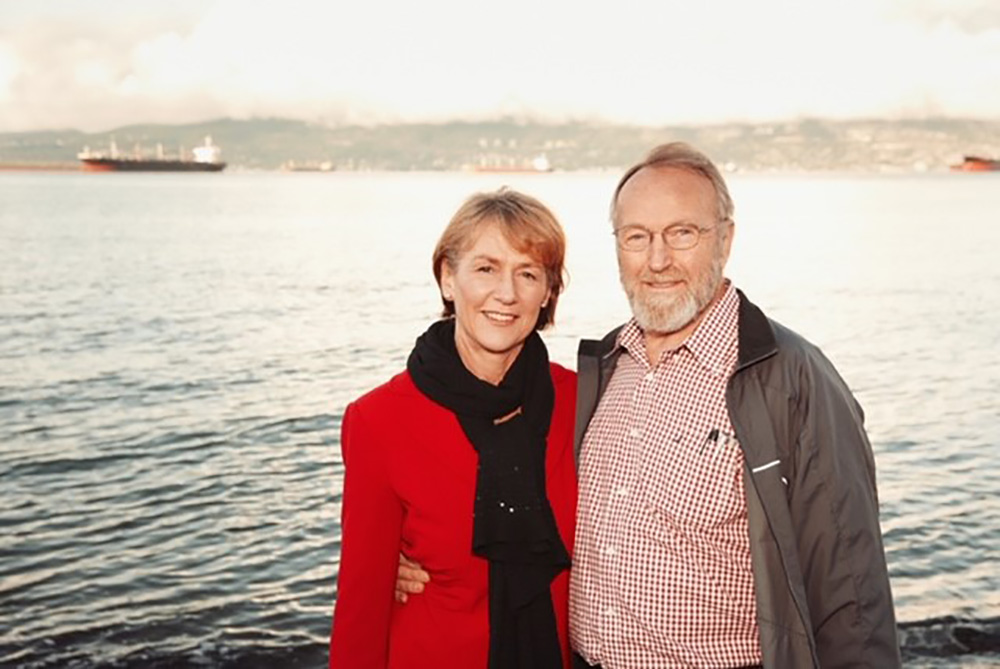
Her favourite getaway in British Columbia is Lasqueti Island. The island’s 300 residents rejected an offer by BC Hydro to hook up to the grid, and elected to have foot rather than car-ferry services to preserve the tranquility of their home.
“Our place is on the water and utterly isolated. We spend three weeks a year there. It’s a basic cabin on a small acreage that we bought 40 years ago. Totally off-grid.”
Have Murray’s public duties put pressure on her private life, a life she was once uncomfortable “to extend beyond”? To the contrary. Murray says that politics, despite all the demands, has transformed her into a people person, and made her marriage to Dirk stronger.
“It was very difficult in business together, because we sometimes disagreed over what the company’s priorities should be. He greatly respects my role in politics, is super-supportive, and I’m in a better place to bring about change. We still completely share action on climate as our number one priority.”
Working on the theory that even the love of one’s life isn’t perfect, I ask Murray if she could change one thing about her husband, what would it be?
“He is very certain of himself, whether he has a clue about what he’s talking about or not. A little more humility,” she says with a laugh.
And what would he change about Murray?
“I would rather think about what I would change about myself. I don’t actually care what he thinks. I’d like to be more easy going. I am too goal-oriented.”
Left out of cabinet
The purpose-driven nerd in Joyce Murray admires those who have a more natural touch in dealing with people. It is not accidental that her favourite politician is Bob Rae.
After noting that Rae was “incredibly articulate,” Murray stresses that it was Rae’s demeanour that set him apart — “natural, easy, capable and relaxed in question period. He was a people person.” Rae’s only problem? “His timing was not right for his aspirations.”
Those words could equally apply to Murray. She decided to run for the Liberal leadership against the son of Liberal icon Pierre Trudeau. That was as brave as it was futile, even though she had more political experience than he did.
At the time, the Liberals were floundering, and Justin Trudeau was seen as the saviour of his father’s fading party. “His name alone will be worth a majority government, a minority at least,” former Liberal Senator Willie Moore told me before the 2015 election. Although Murray finished second to Trudeau in the leadership, there was never any doubt about who would win.
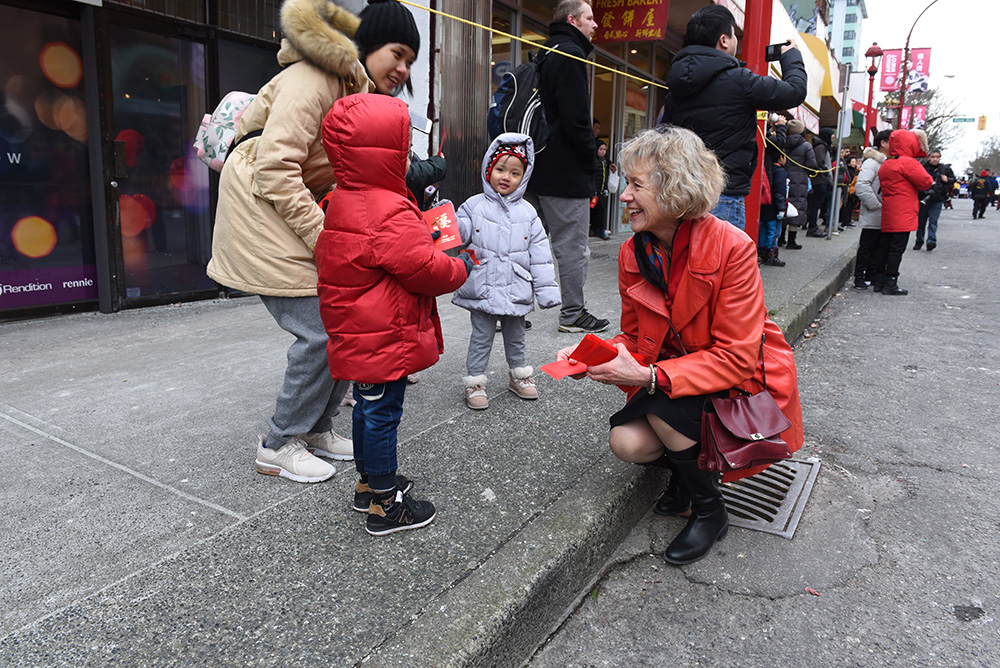
But there was one strange outcome of the leadership race. Despite her strong showing on the national stage, her grasp of policy, and executive experience in the government of former B.C. premier Gordon Campbell, Murray never made it into cabinet when the Liberals formed the government.
Making that even stranger, one of Trudeau’s priorities was gender equality around the Big Table. How could Murray, a proven female business executive with ministerial experience on the environment file, be left out?
And how could she be passed over when other women with no political experience were elevated? Murray’s own answer to those questions draws on her personal history in British Columbia.
“I had no political experience either before being appointed as a cabinet minister provincially. Despite that, I knew that I was able to contribute. So that’s why, when our prime minister appointed people with no prior political experience, one of my responses was ‘okay, I get it.’ That worked for me.”
Murray is proud of the time she served in the Campbell government as minister of environment. She says her biggest accomplishment was setting the foundation for British Columbia’s climate plan, a five-part agenda announced by the Campbell government early in its second term. As for her loss in the 2005 provincial election, Murray blames it on the Bossa Nova: in politics, the dance of love is always fickle.
“I lost in 2005 for the same reason I won. Ten years of the NDP, then a swing to the Liberals. We lost 31 seats after the first term. We did a lot of painful things to erase the structural deficit. It swung back.”
Does Murray think that women are treated fairly in public life when it comes to pulling down the top jobs?
“By and large, yes. At the same time, we still have unconscious, cultural biases that leaders must be men. That’s pretty normal given that we’ve had a patriarchal social structure for thousands of years. The #MeToo and Idle No More movements are causing people to reflect on their biases. I like seeing issues taken out of the hands of spokespersons and given back to mothers and daughters. That will help bring equality.”
On electoral reform and Trans Mountain
Murray’s pragmatic instincts as a politician also show up on what was the central policy plank of her run for the Liberal leadership — electoral reform.
As a leadership candidate, she was solidly in favour of replacing the first-past-the-post system with some version of proportional representation. That would fix the systemic aberration of giving 100 per cent of the power to a party that received a minority of the votes.
It was also Murray’s way of fixing one of the things that was plaguing the House of Commons; fierce partisan gridlock over almost every issue. The B.C. MP thought that with more players at the table, a more co-operative model of governance might be forged. That approach had worked for her in business, and she thought it could work in public life too.
While on the campaign trail before he became prime minister, Justin Trudeau also adopted electoral reform of some kind to replace the current system. But ultimately, the PM reneged on the promise that 2015 would be the last election run under the first-past-the-post system.
Given Murray’s own passionate stance on the issue, that should have been an uncomfortable development for her. Instead, it demonstrated a bedrock principle she lives by as a politician, a conviction that she believes is bigger than almost any single issue.
“Politicians can’t get too far out in front of the public or they’re cast aside. If you do that, you end up like Stephane Dion. You don’t get elected, and you won’t be re-elected if you get out too far in front of the public. That’s why we need the public to dictate to us how far we can go. When a letter was sent to every household in Canada, asking people to weigh in on electoral reform, only 1.5 percent engaged. That’s not a real basis for making a huge change to our system. I get why it was deemed insufficient to move ahead on electoral reform.”
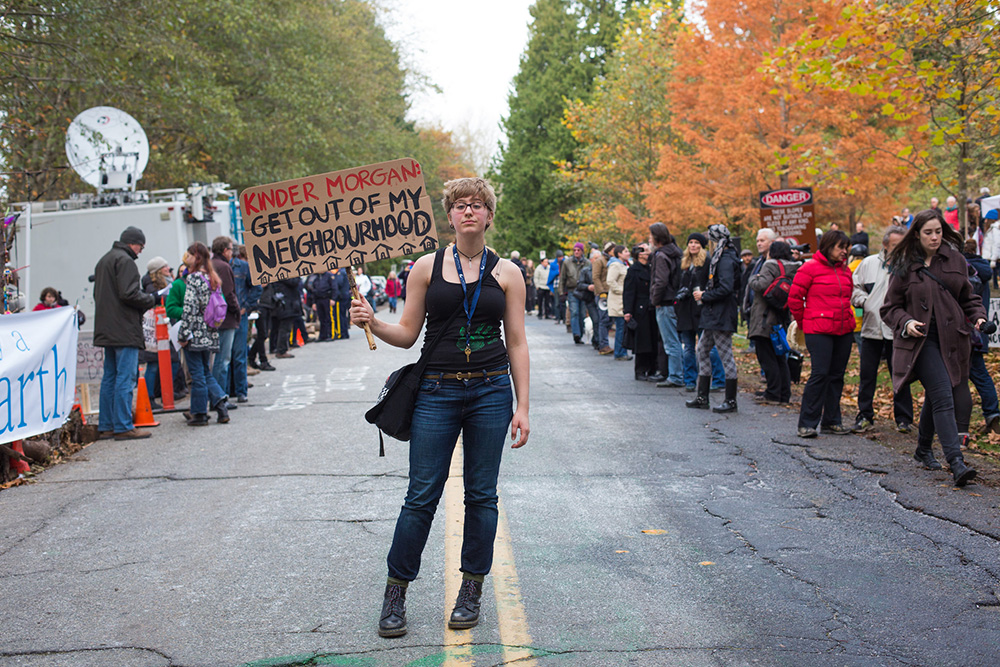
But there is one issue where Joyce Murray didn’t “get it” and refused to get with the program — the decision to approve, and then to purchase, the Trans Mountain pipeline from Kinder Morgan. Of all the speculative reasons why Murray is not in cabinet, her opposition to both of these decisions may be the most plausible one.
“I was very committed to persuading the PM and the team that the project should not be approved. My concerns were the ones that the Federal Court of Appeal cited. I am concerned about the marine environment, our southern resident killer whale population and the opposition of Indigenous people. That is the solid opinion of the majority in my riding. So I was very actively meeting with the minister [Catherine McKenna] and the PM, and writing out my two-page analysis for caucus. I did that for the whole nine months it was under consideration.”
Murray ultimately lost the argument, but not her ability to find the silver lining in the darkest cloud. For one thing, she says that she had “every opportunity” to state her views to decision makers.
More than that, although she opposed the Trans Mountain decision, she thought the pipeline had actually done some good for climate change, contrary to what many critics have claimed. Without the pipeline, she points out, Alberta would not have signed on to the national carbon tax, reduced methane emissions, or agreed to shut down coal-fired power plants by 2025.
“I will always push back when critics say the pipeline is bad for climate change, because it brought Alberta into the climate change camp to help us meet our targets.”
What keeps her up at night
All that could change if Rachel Notley’s NDP government goes down to defeat, and Jason Kenney comes to power in Alberta on a wave of populism like the one that elected Donald Trump.
“Trump was elected because of the rise of populism, and we’ve seen the rise of the same thing in Germany, Italy and France. Our PM is very clear about that — we’re going to bring people together, not divide them.
“We can’t let populism take root here. If we do, everything will be at risk, income equality, the reconciliation with First Nations, progress on climate change, everything. That’s something that keeps me up at night.”
In the end, Joyce Murray’s public career, though she herself is essentially a private attraction, has been a second romance.
“I’m happy to have the opportunity through politics to express my love of the people. I’m an introvert by nature and politics has made me relax a bit more. It’s been a healthy thing for me.” ![]()
Read more: Federal Politics


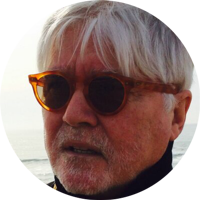

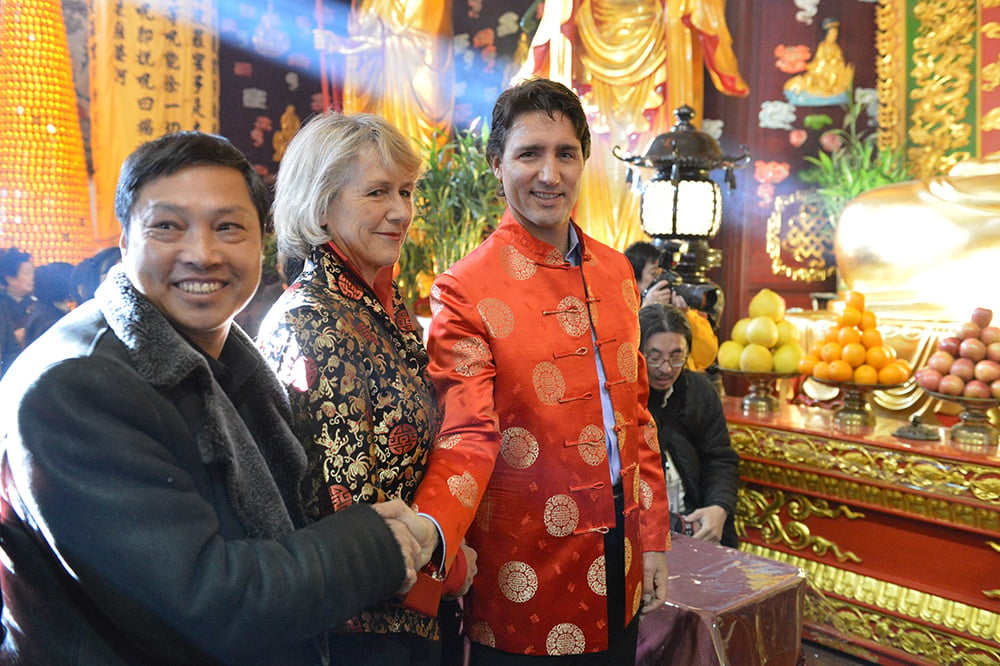












Tyee Commenting Guidelines
Comments that violate guidelines risk being deleted, and violations may result in a temporary or permanent user ban. Maintain the spirit of good conversation to stay in the discussion.
*Please note The Tyee is not a forum for spreading misinformation about COVID-19, denying its existence or minimizing its risk to public health.
Do:
Do not: